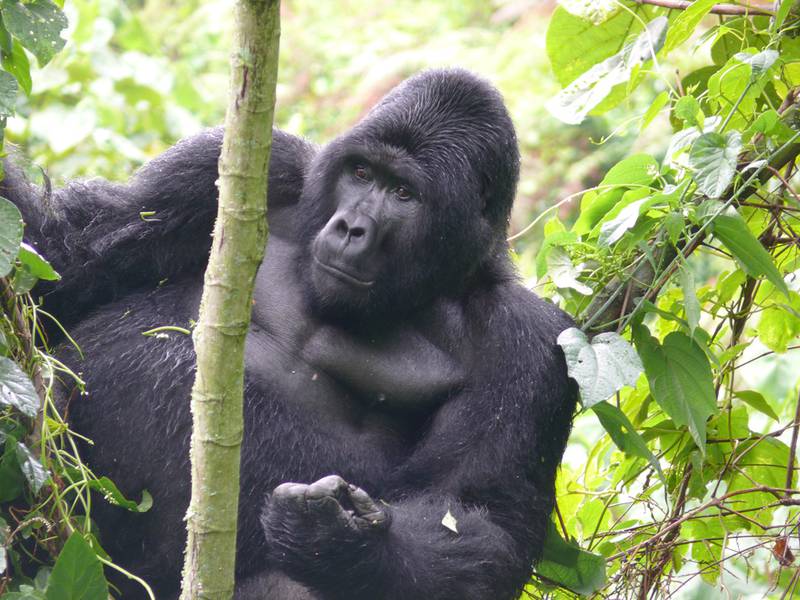Population of Bwindi Gorillas Increases to 459 Animals
Categories: Success Stories, Censuses, Democratic Republic of the Congo, Uganda, Bwindi, Sarambwe, Mountain Gorilla
Taking into account the latest census from Bwindi-Sarambwe, and including the figures for Virunga gorillas from the 2015-2016 census, the global total population of mountain gorillas (Gorilla beringei beringei) now stands at 1063 individuals.
The Bwindi-Sarambwe ecosystem is one of the two areas where mountain gorillas occur. This habitat covers 340 square kilometres and extends from Uganda to the Democratic Republic of the Congo.
For the latest census, 75 staff surveyed the area in two sweeps, the first between March and May 2018 (62 days) and the second from October to December 2018 (60 days). On discovering fresh or recent signs of gorillas, the surveyors followed the signs until they had located three nest sites, from which they collected faecal samples for the genetic identification of individual gorillas. The results showed that at least 459 gorillas roam Bwindi and the adjacent Sarambwe Reserve, 263 of which were previously unknown. Not every gorilla is detected by this method, but we can say with certainty that the mountain gorilla population in Bwindi-Sarambwe has increased significantly since the last census in 2011, when a population of 400 gorillas was estimated.
Sarambwe Reserve was included in the census, for the first time, because several groups of Bwindi gorillas occasionally visit this area; thus previous surveys may have failed to record all the gorillas that occur in Bwindi.
However, in spite of the encouraging survey results, it is not possible to sit back and relax: illegal activities in the protected areas continue unabated, as testified by the surveyors: the teams destroyed 88 snares, a similar number as in 2011.
You can read more about this in the final census report.
Summary of a press release by the International Gorilla Conservation Programme (IGCP)


![[Translate to Englisch:] [Translate to Englisch:]](/fileadmin/user_upload/gorillabestand-bwindi-sarambwe2018-d.jpg)